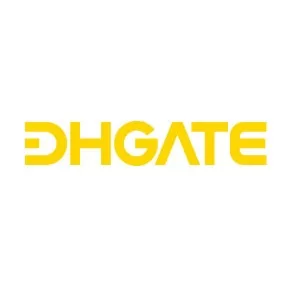Technology that motivates us to save energy; informing best practice in out-of-hours secondary care; enhancing ‘thrill’ experiences across the entertainment sector; and survey tools and intelligent data software to inform decision-making in the field of sustainable development and environmental policy; these are just some of the innovations led by theHorizon Digital Economy Research Centre at The University of Nottingham.
In recognition of the impact it has already had on our daily lives the centre has received an additional £4m to support its work to 2020. The funding via the Engineering and Physical Sciences Research Council (EPSRC) is part of a £23m investment to support six new multidisciplinary research centres in driving forward the UK’s Digital Economy research, knowledge and skills.
Derek McAuley, Professor of Digital Economy in the School of Computer Science and Horizon Director, said: “Horizon addresses a growing public concern over the exploitation of personal data. We will deliver a transformation from the dominant focus on analysing centralised ‘big data’ to explore the private and ethical interpretation of ‘human data’ collected by our personal devices including mobile phones and wearable devices like the Apple Watch or Fitbit. Building privacy and trust into the next generation of digital experiences and products is essential to ensure public acceptance, and hence the continued economic and social benefits of upcoming technology innovations.”
This new funding will advance research aimed at transforming the way we live in digital Britain and enable Horizon to further engage with external users in various real-world contexts and build the centre’s critical mass to create a step-change in its translational research and impact.
Led by Professors Steve Benford, Derek McAuley, and Tom Rodden in theSchool of Computer Science and Sarah Sharples in the Department of Mechanical, Materials and Manufacturing Engineering, the centre is supported by over 200 industry and academic partners.
Research ‘in the wild’
Established in 2008 Horizon has always followed a strongly user-centred approach, undertaking research ‘in the wild’ based on principles of open innovation.
As a multidisciplinary centre for translational Digital Economy research it balances the technical drivers in the capture and analysis of human data with an awareness and understanding of human and social values. Since its formation in 2008, Horizon has grown its critical mass to over 50 researchers across a variety of disciplines, developed a network of over 200 external partners, engaged with a network of UK and international research institutions, and shaped a Centre for Doctoral Training programme that will ultimately graduate over 150 PhDs.
Collaboration shapes research
Professor Derek McAuley notes: “We aim to promote ‘ethical by design’ technologies. Delivering this vision involves working closely with our users. We are proud to have a network of partners that spans major corporations, catapult centres, small enterprises, third and public sector organisations, and independent creatives. These partners are drawn from a range of sectors across the digital economy, and by providing us with access to resources, opportunities for studying user experiences and deploying prototypes, they have helped us shape our research to date.
We now envision a move towards users co-creating services and products underpinned by human data. We will look beyond narrow sectoral interests and instead focus on wider thematic context that integrate interests across clusters of partners and lead to new collaborations between them.”
Horizon has already run a number of ‘theme days’ with partners to explore potential activities for its impact campaign, and is now set to engage in the new programme of translational research starting in September 2015.
Professor Philip Nelson, EPSRC’s Chief Executive said: “Building on our previous investments, these new Digital Economy Centres will show how multidisciplinary research in the digital economy can be brought to bear on the big societal challenges we face. Their impacts in the real world will be shown by adoption by policy makers and improvements in services and economic benefits in the public, private and charitable sectors.
These centres are a result of a collaborative call with our partners the Arts and Humanities Research Council (AHRC), Innovate UK, the Digital Catapult and others. By working together and involving users we have been able to encourage the leveraging of £22 million additional funding and support in kind that will boost the impact of these centres.”
The six new centres will be hosted by the University of York, the University of Bath, The University of Nottingham, Swansea University, UCL and Newcastle University.
Universities and Science Minister Jo Johnson said: “This latest investment demonstrates our commitment to maximising the digital revolution for the UK. These Centres will lead the way in developing innovative digital products which enhance our daily lives — from personalised digital health services to the use of interactive media in education.
By harnessing our international research excellence, in partnership with local and regional expertise, these Centres will accelerate Digital technology innovation for business and society’s benefit.”




















































